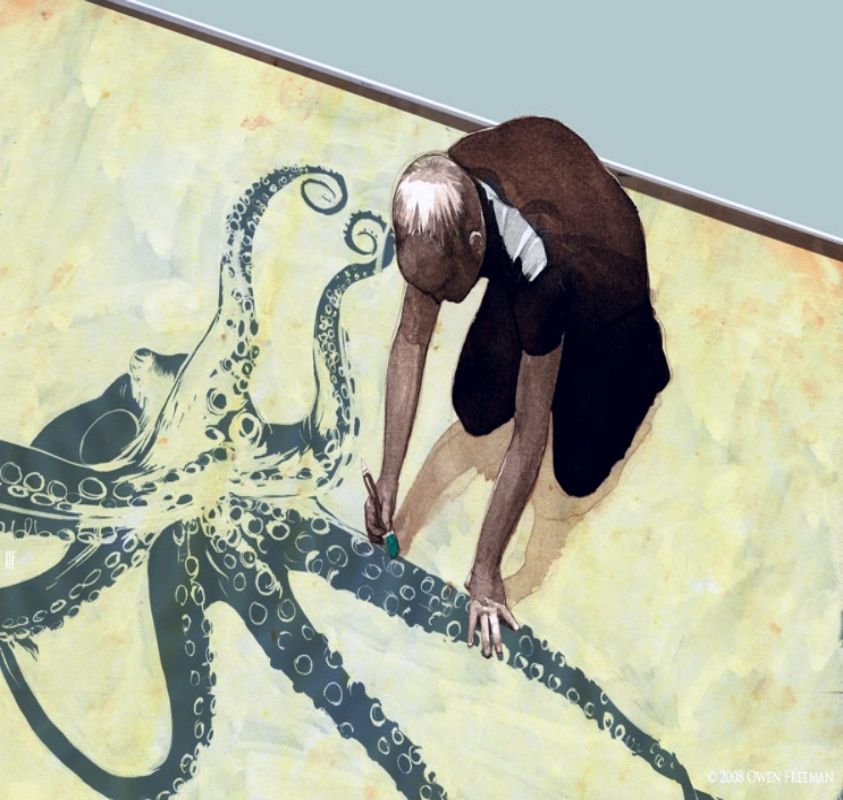Post by Officer on Oct 13, 2013 20:02:45 GMT
Unlike typical writing forums, Edge of Existence brings creative minds nearer to reality than most mediums of writing can ever dream to approach. It sets it's foundation on a real-world timetable -- the years moving with a slightly elevated quickness. In spite of this, newcomer's will find their creations and the world surrounding them, more tangible than should ever be. Their character's age and see the seasons change -- it affects them in a real way, and there are happenings at every turn outside their control. Each day carries significance, and you are able to track their beginning to the very instant they were imagined. In this sense, their lives become real - not mere writings on a page. | THE PROCESS:
Edge of Existence (ie. EoE) has been developed around the certainty of time we live in, but moves at it's own unique pace.
Five days in our life amounts to a single day in the life of our character's. So we realise that a passing month in our world
is roughly six days in this realm.
DAY ONE: 1-5th
DAY TWO: 6-10th
DAY THREE: 11-15th
DAY FOUR: 16-20th
DAY FIVE: 21-25th
DAY SIX: 26th-EOM (end of month)
DAY TWO: 6-10th
DAY THREE: 11-15th
DAY FOUR: 16-20th
DAY FIVE: 21-25th
DAY SIX: 26th-EOM (end of month)
To begin a roleplay, participants will first mark the days their collaboration will span.
They advertise this agreement as a date/calendar within their thread.
It will look something like this:
"JANUARY DAY 1"
"JANUARY FIRST"
"JAN 1st"
Or if scheduled for several days:
"JANUARY 1-3rd"
As long as they are in the area, a third party can interrupt these chosen calendar dates by posting in your roleplay --
there isn't a logical way to avoid them. This allows the nature of real life to seep into the experience. A character may
never know when an assassin is lurking in the shadows, or if today they will cross paths with an age-old companion.
The decided days may then be coloured red to warn a writer not to mark ahead on their character journal -- since the
upcoming events have the potential to decide their future (ie. conflict, ambush, marriage, alliances, etc).
CHARACTER JOURNALS:
A simple day-to-day record of the happenings in a character's life. It functions for two reasons...
Firs, Journals allow a member to observe another character's life in order to coordinate roleplay's.
Secondly, it summarises the days in a character's life that are not being played -- or cannot be played
because of a current RP. Everyone stays up-to-date, and neatly follow the 6 day calendar.
PROCESS EXAMPLE:
Player's have scheduled their RP to span from the 1st-3rd on the calendar.
One of the player's intend to ambush the other during this time, so he
colours the days red in the thread. This warns the opposing writer not
to mark ahead on his Journal because the events may affect the days to
come.
If the collaboration did not have this potential, player's
could mark ahead on their journals to keep up with the
times. Even engage in multiple RP's so long as they're
happening on separate days.
JANUARY
Day 1 - Traveled to ____.
Day 2 - Met so-and-so on the way, detoured in ____.
Day 3 - Arrived in ____.
Brief summaries to explain passing days on which you have, or have not written for. If on Day 2 a member see's you're in ____, they may freely intercept with a post. Keep in mind, you may want to look back on your calendar someday, so make it worthwhile. Together this gives our writings a far more realistic potency. Most roleplaying outlets exist in a swirling bowl of time. There is no record, or way to know what a character is doing at any given moment. They are able to exist in several different dimensions at once - omnipresent... Edge of Existence confidently follows the road less traveled.

RP'ING A BATTLE: Wars are large engagements with hundreds or even thousands of troops on either side. A difficulty comes in managing such a vast conflict. Here, we solve this problem by allowing members to use their characters as the leaders of their army. Much like a chess match, the general will detail the militaries movements across the battlefield, and respond to the actions of their opponent. It is up to the RPer to decide whether or not they want to actively participate in the battle as a soldier, or general.
This allows the employment of strategies in battle that could mean the difference between victory and defeat. It also enables one to split their forces between two roleplayer's on the same side. For instance, one player may lead an entire naval force and the other commands the ground troops. Nevertheless, trouble arises in having your character acting leader in the midst of battle. Should they perish in the thick of it, control over the army should pass to the next RPer willing to take over, otherwise... the struggle is lost.
CASUALTIES:
The most important aspect of the battle takes place afterwards. Once a battle is complete an Officer will review the thread, taking into account all movements and extenuating circumstances before deciding on a death count.

